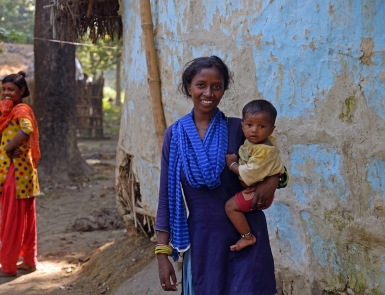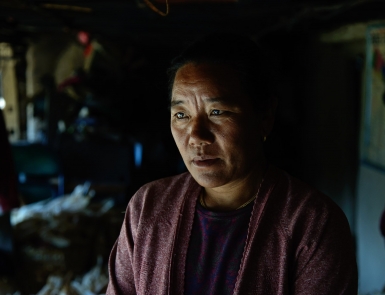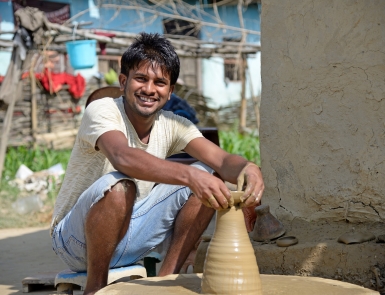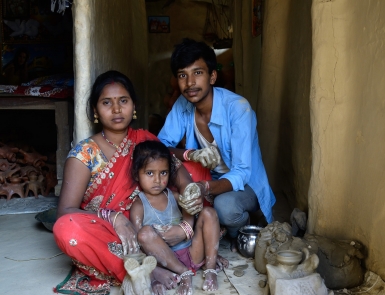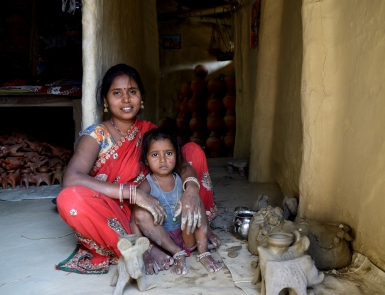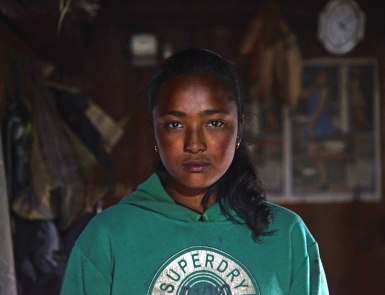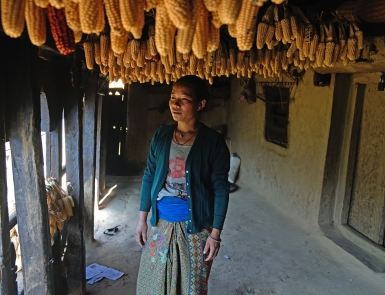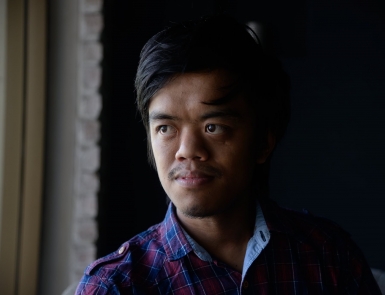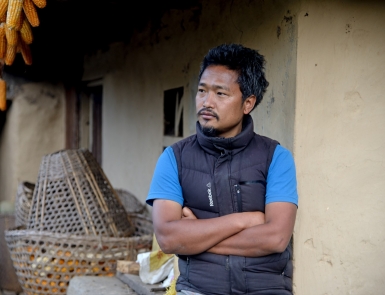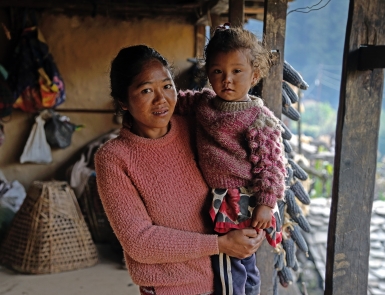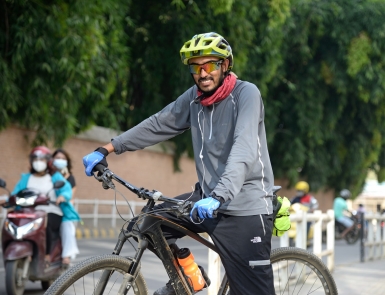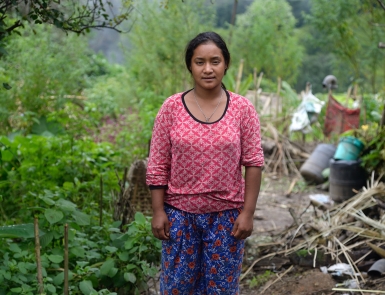"I want my child to have his own land and his own house. I want him to live without fear of being pushed away from one place to another as we have. I want him to be able to go to school, have friends, have food, and have health. I want him to read, write, and answer. I want him to have a job when he grows up. I want him to see money. I want him to be able to sleep peacefully at night. Tomorrow should not be a cause of worry but a cause of hope for him. And when he leaves for work, I want him to come back home."
"During winter, they pushed the sheep all the way to Pyuthan and Arghakhachi. There were no roads, no life along the way, and no food. And during monsoon, they made the sheep climb and feed on the mineral-rich grass of the Buki-Patan in the surrounding mountains. They saved coins in leather pouches one after the other. Then as I grew and as time walked ahead, the age of paper notes began. They saved. My only brother walked with Father-Mother following their footsteps, to ultimately lead similar lives. My brother never asked for education, he was happy with the sheep and the fields.
"I am the person who keeps everyone safe at the cement factory nearby. I make sure that all switches are functional for the plant to run smoothly. I do not want losses for the factory. You see, it employs hundreds of people. So I work whole-heartedly.
'I am young but I am learning new things. Recently I used the internet to find about the prevalent wrong practices in Nepal. So many things came up and it will take me some time to understand all of it.
"Mother and father never showed me their tears. I knew they had to sell a piece of land to buy gold and prepare the dowry money. I understood their fears. Many women who are married and go to their husband’s home without proper arrangements suffer their entire lives in their new home. Mother and father did not want such a fate for me.
"I sell tea. But I also go to school. When I grow up and when I can read and write better, I am going to ask all the old and the young people here to gather and sit around me. Then I am going to give them pencils and notebooks to write on. Then I am going to teach them all the words I know. I know they will be very happy. And I will be happy being their teacher."
(Pattale, Solukhumbu)
#TheFutureIWant
SON X UN
"I wanted to play with my girlfriends more than I wanted to go to school. I cannot blame my parents for not sending me to school. They did. When my father passed away I was 13 years old. I remember my mother calling me to say, “You did not go to school, so learn how to sew. Our Magars in the community will buy your traditional clothing. And it will also help me sustain the family.” I did as mother said as she had become alone and sitting by her side and sewing cleared the loneliness from the room and her heart. What I did with my mother slowly became my passion. I continued sewing.
"The first question a lot of people ask me is if I know how to sing and dance. They attribute people with disabilities mostly with performance art. It is a stereotype used against people with disabilities to snatch away their rightful position in other roles and professions of society. Every time I returned home during the holidays, the villagers would ask me if all the pupils in my school were like me. Many people would heavily advocate that I pursue arts that I dance and I sing like my life was confined to these things.
"I am my parent's only son and because of that, I have received special treatment all my life. My parents are sheepherders. Rearing sheep is the generational occupation of our place. They walked with the sheep all their lives. During monsoon, they climbed up to the high-altitude pasture where they lived in Goths with the sheep. The land was suitable for the sheep as they could graze on plenty of mineral-rich grass and herbs. During winter, they would descend to the foothills around Dang with the sheep to escape the freeze.
"I am soft-spoken but I have a strong will. Maybe that is why I walked all the way to Khalanga to get extra tuition classes. I rented a room with a few other girls whom I had convinced to join me. I had told them that we need to continue with school and they in turn were able to convince their family. In Khalanga, we paid rent and we paid for these tuition classes. We all knew that without these extra classes we would never pass our examinations.
"I am a geologist. After the earthquake, my job required me to travel to villages and communities that were at high risk of natural disasters and earthquake-induced landslides. I remember going to a community and remember how we were received. There were meat and garlands and all kinds of activities to entertain us. In my heart, I understood why the villagers spent money to welcome us. It was at our recommendation that the government would approve the relocating of the entire village to a safer area.
"If I had chosen to go to school, my sisters would have to work at home. I made a sacrifice for them. I chose to truly understand the scarcity at home. Maybe my sisters would have too but I decided not to wait to participate in the problems of the household. I did not wait for my turn to come or for someone in the family to tell me. I just started doing housework. So I would wake up earlier when everyone would be sleeping and finish all the house chores. I would go to work in the fields for planting and harvesting and storing.

